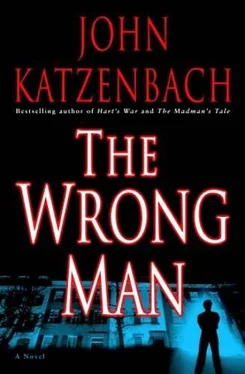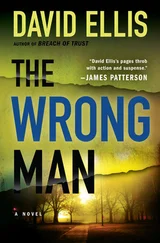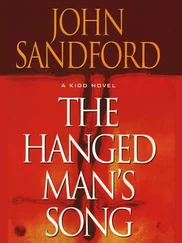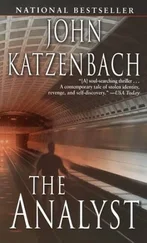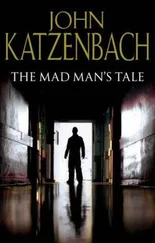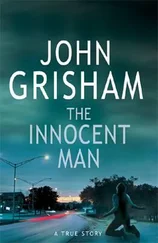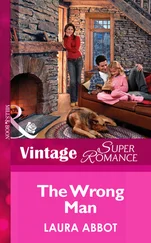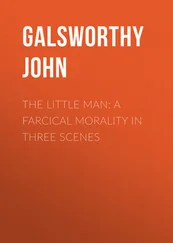The ax handle came down partway.
“Keep talking.”
Scott shook his head. He was making things up as he went along.
“I don’t negotiate on the street, Mr. O’Connell. And the man I represent surely wouldn’t want me spilling his business all over the place where anyone might take notice of it.”
“What the hell are you talking about?”
“Let’s go inside your place, and then we can have a little private conversation. Otherwise, I’m going to get back in my car, and you will never see me again. But you might be visited by someone else. And that someone, or even a couple of someones, Mr. O’Connell, I assure you, will not be nearly as reasonable as I am. Their sort of negotiation is significantly different from mine.”
Scott thought O’Connell had probably spent much of his life either making threats or receiving them, and so this was all a language the man was likely to understand.
“What did you say your name was?” O’Connell asked.
“I didn’t say. And I’m not likely to, either.”
O’Connell hesitated, the ax handle dropping farther.
“What’s this about?” he demanded. But the tone his words carried contained some interest.
“A debt. But that’s all I’m saying right now. This could be valuable for you. Make some money. Or not. Up to you.”
“Why would you pay me anything?”
“Because it is always easier to pay someone than the alternative.” Scott let O’Connell’s father mull over what the alternative might mean.
Again, O’Connell’s father paused, then the ax handle swung down to his side. “All right. I’m not buying any of this bullshit. Not yet. But you can come inside. Tell me what this is all about. Make your pitch, whatever it is.”
And with that, he gestured across the street to his home, using the ax handle to direct their path.
There is a place in the woods beyond the dirt road that parallels the Westfield River, below a spot called the Chesterfield Gorge, where either side of the stream is protected by sixty-foot-high sheets of gray rock, carved by some prehistoric seismic shift, that is favored in the colder months by hunters, and in warmer times by fishermen. In the hottest days of summer, Ashley and her friends would sneak up to the river and go skinny-dipping in the cool pools.
“I think you should use both hands,” Catherine said sternly. “Steady the weapon in your right hand, grip them both with your left, take aim, and then pull the trigger.”
Ashley moved her feet slightly apart, cupped her left hand over her right, and tightened her muscles, feeling the trigger with her index finger. “Here goes,” she said quietly.
She pulled the trigger and the gun bucked in her hand. The shot resounded through the forest, and a piece of tree bark splintered off the oak she had aimed at.
“Wow. I can feel it tingle right through my forearm.”
Catherine nodded. “I think what you want, dear, is to pull the trigger five or six times, while you are holding the gun steady, so that all six shots will be clustered together. Can you do that?”
“It feels like it wants to jump around. Go all over the place. Almost like it’s alive.”
“I guess you could say that it has a personality all its own.”
Ashley nodded, and Catherine added, “And not a particularly nice one.”
“Let me try again.”
Again she assumed the firing position, and this time tightened her left hand’s grip to steady herself. “Here we go.”
She fired the remaining five shots. Three hit the tree trunk, spaced about two or three feet apart. The other two spun off into the forest. She could hear them whistling into oblivion, snapping through branches and the few remaining low-hanging leaves. The sound of the gun echoed in the bare trees around them and filled her ears. She let out a long, slow whistle of breath.
“Don’t close your eyes,” Catherine said.
“I think I should try again.”
Ashley clicked open the cylinder and dropped the spent shells on the pine-needle floor. She slowly took another half dozen bullets and loaded them into the weapon. “Only going to use this thing one time.”
“Yes. True enough. And only then if you really have to.”
“That’s right.” Ashley turned and took aim at the tree trunk once again. “Only if I really have to.”
“If you have no choice.”
“If I have no choice.”
Both of them had much to say about that, but didn’t actually want to use the words out loud, not even in the silent anonymity of the forest.
Scott moved slowly up the half-gravel, half-dirt driveway that led to O’Connell’s house, a distance of perhaps thirty yards from the quiet street. It was a single-story, white-framed building, with a battered television antenna hanging from the roof like a bird’s broken wing, next to a newer, gray satellite dish. In the front yard, a faded red Toyota was missing one door, one wheel up on a cinder block. Large brown rust stains marred the sheet-metal surface. There was also a newer black pickup truck, parked by a side door, partway beneath a flat roof constructed out of a single sheet of corrugated plastic. The roof made the space into a carport, but it was littered with a beaten red snowblower and a snowmobile missing its treadmill. As Scott walked past the pickup, he noticed an aluminum ladder, a wooden tool kit, and some roofing materials had been thrown haphazardly in the bed. O’Connell was pointing him toward the side door, but Scott noted a main entrance in the front. He doubted it was used much.
Probably a back entrance, he thought. Check to make sure.
“Through there. Don’t mind the mess. I wasn’t expecting company,” O’Connell’s father said gruffly.
Scott let himself in the aluminum screen door, then through a second, solid-wood door, into a small kitchen. Mess was an accurate description. Pizza boxes. Microwavable dinners. Three cases of Coors Light in silver boxes. A bottle of Johnnie Walker Black Label on the table to accompany the array of cans.
“Let’s go into the living room. We can have a seat, Mr.-okay, Mr. whatever your name is. What should I call you?”
“Smith works,” Scott said. “And if you have trouble keeping that straight, Jones will do just as well.”
O’Connell’s father snorted a small laugh.
“Okay, Mr. Smith or Mr. Jones. Now that I’ve invited you in here, why don’t you sit right over there where I can keep an eye on you, and you can explain yourself nice and quick, so that I don’t go back to thinking that my friend the ax handle is the better way of dealing with you. And you might get to the how-I-make-some-money part real quick. You want a beer?”
Scott walked into a small living room. There was a threadbare sofa, a recliner with a large red-and-white cooler next to it that served as a table, across from an oversize television set. Newspapers and pornographic magazines littered the floor, along with piles of grocery-store circulars and catalogs from various hunting stores. On one wall there was a stuffed deer head, which stared out blankly from behind glass eyes. A T-shirt hung from one of its antlers. He tried to imagine the house when O’Connell had been growing up here, and he could see in its bones the potential for a kind of normalcy. Get the debris out of the yard. Remove the interior clutter, fix up the couch. Replace the chairs. Hang a couple of posters on the walls, and spruce everything up with paint, and it would have been almost acceptable. The random piles of litter told him much about the father and little about the son; O’Connell’s father had probably replaced his dead wife and absent son with much of the mess.
Scott slid into a chair that creaked and threatened to give way and turned toward O’Connell’s father.
Читать дальше
